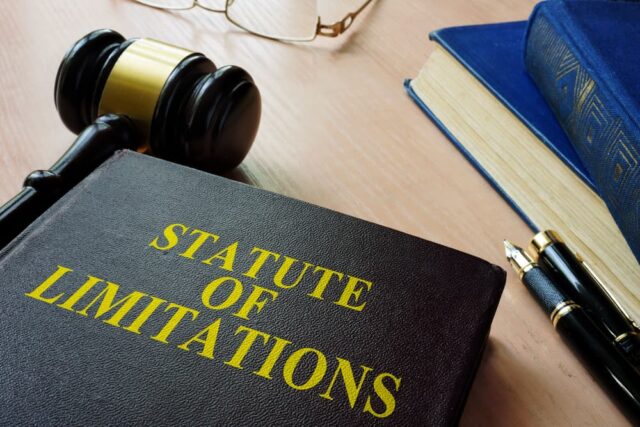Car accidents are frightening and overwhelming experiences, leaving many victims unsure of what to do next or what to expect. In the aftermath of a collision, many uncertainties and questions often arise. What should you do next? How will you handle the legal aspects of the accident? This blog post will guide you through the process and provide valuable insights on what to expect after a car accident. If you find yourself in this unfortunate situation, don’t hesitate to contact a skilled car accident lawyer to review your case.
The Initial Steps
The moments immediately following a car accident can be chaotic and stressful. Remain calm and prioritize your safety and the safety of others involved. Here are the initial steps to take:
- Check for injuries: First and foremost, check if anyone involved in the accident requires immediate medical attention. If there are serious injuries, call for an ambulance.
- Call the authorities: Contact the police to report the accident, even if it seems minor. An official record of the incident is essential for insurance and legal purposes.
- Exchange information: Collect the contact and insurance details of the other drivers involved in the accident. Be sure also to gather information from any witnesses present at the scene.
- Document the scene: If possible, take photos of the accident scene, including the damage to the vehicles and any road conditions that might have contributed to the accident. You can also take pictures of your injuries as well. This visual evidence can be valuable later on.
- Contact your insurance company: Notify your insurance provider about the accident as soon as possible. Follow their instructions and provide them with all the necessary details.
Seeking Medical Attention
 Even if you don’t feel any immediate pain or discomfort, seek medical attention after a car accident. It doesn’t necessarily mean heading to the emergency room or urgent care center; it can be seeing your healthcare provider at their next appointment. Some injuries may not manifest right away, and a medical professional can assess your condition and provide proper treatment. Here’s what you should consider:
Even if you don’t feel any immediate pain or discomfort, seek medical attention after a car accident. It doesn’t necessarily mean heading to the emergency room or urgent care center; it can be seeing your healthcare provider at their next appointment. Some injuries may not manifest right away, and a medical professional can assess your condition and provide proper treatment. Here’s what you should consider:
- Visit a doctor: Schedule an appointment with a healthcare professional, even if you believe your injuries are minor. They will conduct a thorough examination and document any potential injuries.
- Follow the prescribed treatment: If the doctor recommends any specific treatments, therapies, or medications, be sure to follow their instructions diligently. It will aid in your recovery and establish medical documentation.
- Document your medical records: Keep a record of all medical bills, diagnoses, treatment plans, and any other documents related to your injuries. This documentation will be essential when dealing with insurance claims and legal proceedings.
- Go to Rehabilitation as Ordered: Following initial treatment, ongoing rehabilitation may be necessary to aid recovery and minimize long-term effects. Physical therapy, chiropractic care, and other rehabilitative treatments can play a crucial role in restoring overall health and well-being.
Dealing with Insurance Companies
Once you’ve taken care of your immediate safety and sought medical attention, the next step is to go through the insurance claims process. Here’s what you should know:
- Contact your insurance company: Reach out to your insurance provider to initiate the claims process. Provide them with all the necessary information, including the details of the accident, the other party involved, and any relevant medical documentation. Throughout the claims process, be sure to maintain clear and open communication with your insurance adjuster to ensure a smooth resolution.
- Be cautious when speaking to adjusters: Insurance adjusters may contact you to gather information about the accident. Be cautious when speaking to them, and avoid admitting fault or downplaying your injuries. Stick to the facts and consult your attorney before providing recorded statements.
- Gather evidence: As part of your insurance claim, gather all the evidence you have, such as accident reports, medical records, and photographs. It will help support your case and strengthen your claim.
- Consider legal representation: It’s always beneficial to consult a car accident attorney, especially if you’re facing challenges in dealing with insurance companies or believe you’re not receiving the compensation you deserve. They can provide professional guidance and fight for your rights.
Understanding the Legal Process
Suppose the car accident resulted in significant injuries or property damage. In that case, it may be necessary to pursue legal action to seek fair compensation. Here’s an overview of the legal process:
- Consult an attorney: Contact a car accident attorney focusing on personal injury cases. They will evaluate your situation, discuss your legal options, and guide you through the legal process.
- Investigation and evidence gathering: Your attorney will conduct a thorough investigation to gather evidence supporting your case. It may include obtaining accident reports, gathering witness statements, and consulting with experts.
- Negotiations and settlement: Your attorney will engage in negotiations with the other party’s insurance company to reach a fair settlement. They will advocate for your best interests and ensure you receive your deserved compensation.
- Litigation, if necessary: If a full and fair settlement cannot be reached, your attorney may initiate a lawsuit and proceed to court. They will present your case, argue on your behalf, and strive for a favorable outcome.
Understanding Personal Injury Lawsuits
In some cases, car accident victims may choose to pursue a personal injury lawsuit to seek compensation for their damages. To do so, it is important to understand the basics of personal injury lawsuits.
One of the critical elements in these cases is negligence, which refers to the failure to exercise reasonable care while driving. You should also be aware of the statute of limitations, which is the time limit within which a lawsuit must be filed. Additionally, understanding the potential compensation available, such as medical expenses, lost income, and pain and suffering, can help car accident victims make informed decisions about pursuing legal action.
The Elements of Negligence for Car Accidents
When it comes to car accidents, determining who is at fault is a crucial step in pursuing a personal injury claim. To establish fault, one must prove negligence, which is the failure to exercise reasonable care. In car accidents, negligence refers to the actions or omissions of one or more drivers that led to the collision. Understanding the elements of negligence can help car accident victims and their families handle the complexities of the legal process.
- Duty of Care: The first element of negligence is the duty of care. Drivers have a legal duty to drive safely and in accordance with traffic laws. When someone fails to fulfill this duty and causes an accident, they can be deemed negligent.
- Breach of Duty: The second element is a breach of duty. Once established that a duty of care exists, the next step is to prove that the driver breached that duty. It can be done by demonstrating that they acted unreasonably or failed to exercise the caution that a reasonable person would have in the same situation. Evidence such as witness statements, traffic camera footage, and accident reconstruction reports can help establish a breach of duty. Examples of breaching the duty of care include speeding, running red lights, or driving under the influence.
- Causation: The final element is causation. To establish negligence, it must be shown that the driver’s breach of duty directly caused the accident and resulting injuries. This requires demonstrating a causal link between the driver’s actions and the harm suffered by the victim. It is essential to gather evidence that establishes this connection, such as medical records, expert testimony, and accident scene investigations.
Understanding the elements of negligence is crucial for car accident victims and their families. By clearly understanding these elements, they can better manage the legal process and build a solid case to seek compensation for their injuries and damages. Consult an experienced car accident attorney who can help assess the elements of negligence in a specific case and guide victims through the legal process with their experience and knowledge of the law.
The Statute of Limitations for Car Accidents
 The statute of limitations is the legally defined timeframe for filing a lawsuit after an accident. This time limit varies depending on the jurisdiction and the nature of your claim, making it crucial to understand the specific rules that apply to your situation.
The statute of limitations is the legally defined timeframe for filing a lawsuit after an accident. This time limit varies depending on the jurisdiction and the nature of your claim, making it crucial to understand the specific rules that apply to your situation.
In most personal injury cases, including those involving car accidents, the statute of limitations typically ranges from one to six years. However, the clock starts ticking from the accident date or when you discovered the injury, not from the date you decide to pursue a legal claim. Therefore, consult an experienced car accident attorney as soon as possible to ensure you don’t miss any critical deadlines.
The statute of limitations is in place to ensure timely and fair resolution of legal claims. It serves as a crucial protection for both parties involved in a car accident, as it prevents old claims from resurfacing when evidence may have been lost or memories may have faded.
Therefore, failing to file a lawsuit within the statute of limitations can have severe consequences. If you miss the deadline, you may lose your right to seek compensation for your injuries, medical expenses, property damage, and other damages you may have suffered. Don’t let valuable time slip away – consult a skilled car accident attorney to understand your jurisdiction’s specific statute of limitations and the potential legal remedies available.
Damages in Car Accident Cases
When you’re involved in a car accident, you should understand the potential damages you may be entitled to. Damages refer to the compensation you can seek for the accident’s physical, emotional, and financial losses.
One type of damage in car accident cases is economic damage. These damages are calculable and refer to the monetary losses you have incurred. They can include medical expenses, property damage, loss of income, and even future medical costs or loss of earning capacity. Economic damages are often straightforward to calculate as they involve tangible costs that can be documented.
On the other hand, non-economic damages account for the intangible losses you may have experienced. These can include pain and suffering, emotional distress, loss of enjoyment of life, and even loss of consortium. Non-economic damages are more subjective and more challenging to quantify as they involve the emotional or psychological impact of the accident.
In some cases, punitive damages may also be awarded. Punitive damages are meant to punish the at-fault party for their reckless or intentional behavior. These damages go beyond compensating the victim and are intended to deter others from engaging in similar conduct.
Work with a skilled car accident attorney to determine the damages you may be eligible for. They can assess your case, gather evidence, and calculate the appropriate compensation based on the specific circumstances. An attorney experienced in car accident cases knows how to navigate the legal system and negotiate with insurance companies to ensure you receive the compensation you deserve.
Recovering and Moving Forward
The aftermath of a car accident can be physically, emotionally, and financially challenging. However, with the proper support, you can recover and move forward. Here are some important considerations:
- Focus on your recovery: Give yourself time to heal from any physical injuries and seek necessary medical and therapeutic treatments. Prioritize self-care and follow your healthcare professional’s advice. Not only is this best for your physical health, but it will also help maximize your injury claim.
- Stay organized: Keep all documents related to your accident, medical treatment, and legal proceedings organized in one place. This will make it easier for you and your attorney to access the necessary information as needed.
- Stay in touch with your attorney: Maintain open communication with your car accident attorney throughout the process. They will provide updates, answer your questions, and guide you through any challenges that arise.
Contact a Skilled Car Accident Attorney for Help

By understanding what to expect after a car accident, car accident victims and their families can gain confidence moving forward. Seeking immediate medical attention, cooperating with insurance companies, and considering legal representation can significantly impact the outcome of their situation. Remember, if you do nothing else now, consult a personal injury lawyer to ensure you protect your rights and receive the compensation you deserve.

